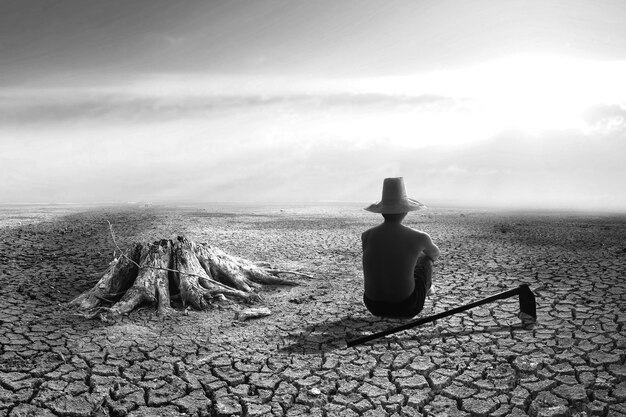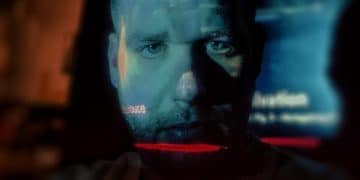Social Commentary in Top Series: Beyond the Plot

Contemporary television series often transcend mere entertainment, serving as potent vehicles for profound social commentary, challenging viewers to engage with complex societal issues beyond the direct narrative.
In an era where streaming platforms dominate our viewing habits, television series have evolved far beyond simple entertainment. Today’s most compelling narratives offer viewers a unique window into complex societal structures, prompting critical reflection. This article delves into how these shows provide incisive social commentary, exploring the layers that exist beyond the plot to dissect contemporary issues.
The Evolution of Television as a Reflective Medium
Television, once labeled the “idiot box,” has undergone a profound transformation. From a passive pastime, it has evolved into a dynamic platform for intellectual engagement, mirroring societal shifts and pushing boundaries.
From Escapism to Engagement
Historically, television’s primary role was to offer escapism from daily routines. Sitcoms and procedural dramas provided comfort and predictable resolutions. However, as production values increased and storytelling matured, creators began to embed deeper meanings within the narratives.
- Early examples often presented idealized versions of life, reinforcing traditional values.
- Emergence of cable television allowed for more nuanced and adult themes.
- Streaming services removed broadcast limitations, fostering creative freedom.
This shift wasn’t sudden but gradual, driven by cultural changes and audience demand for more sophisticated content. The rise of anti-heroes and morally ambiguous characters ushered in an era where television dared to challenge rather than simply affirm.
The Power of Long-Form Storytelling
Unlike films, which are limited by time, series offer the luxury of extended narrative arcs. This allows for intricate character development and the gradual unfolding of complex themes, providing ample space for social commentary to breathe and resonate.
Characters can evolve, their struggles reflecting broader societal dilemmas. Audiences spend dozens, sometimes hundreds, of hours with these characters, fostering a deeper connection and making the embedded messages more impactful. This prolonged engagement also permits exploration of multiple facets of an issue, avoiding simplistic portrayals.
For example, a storyline addressing systemic racism might unfold over several seasons, allowing viewers to see its impact across generations and institutions, rather than a single, isolated incident. This depth is what elevates many contemporary series to the status of cultural touchstones.
The ability to depict gradual change, moral decay, or ideological shifts over time lends itself perfectly to dissecting societal mechanics. It allows for a layered analysis that films rarely achieve.
Deconstructing Power Structures and Inequality
Many of today’s top series are adept at pulling back the curtain on various forms of power and inequality. They illuminate the mechanisms by which certain groups maintain dominance and how marginalized communities navigate oppressive systems.

Exposing Systemic Injustices
From economic disparity to racial prejudice, series often confront head-on the systemic injustices embedded within our societies. They present characters who are both victims and perpetrators of these systems, forcing viewers to consider their own roles.
- “Succession” meticulously portrays the corrosive influence of extreme wealth and dynastic power.
- “The Handmaid’s Tale” offers a chilling dystopian vision of patriarchal control and female subjugation.
- “When They See Us” (miniseries) powerfully recreates the real-life injustice of the Central Park Five case, exposing racial bias within the justice system.
These shows don’t just tell stories; they serve as a mirror, reflecting uncomfortable truths about our world. They provoke dialogue and encourage a deeper understanding of the struggles faced by many. By humanizing abstract concepts like “systemic racism” or “gender inequality,” they make these issues tangible and relatable.
The Nuances of Class and Privilege
The intricate dance between social classes and the often-invisible privileges that accompany them are fertile ground for sophisticated social commentary. Series explore how inherited status, access to resources, and social networks dictate individual trajectories.
“Squid Game,” for instance, brilliantly uses a dystopian game as an allegory for capitalist exploitation and economic desperation. It starkly illustrates how desperation can drive individuals to extreme measures, highlighting the brutal realities faced by those at the bottom of the economic ladder. The series also examines the moral compromises characters make when confronted with an opportunity to escape poverty, no matter the cost.
Similarly, “Parasite” (though a film, its themes resonate deeply with series commentary) masterfully dissects class struggle through the lens of two families, one rich and one poor, showing the inherent inequalities and the psychological toll they take. These narratives challenge the myth of pure meritocracy, revealing how privilege can create insurmountable barriers for others, leading to resentment and societal friction.
Gender Roles and Expectations in Modern Narratives
Contemporary series are actively engaged in challenging and redefining traditional gender roles and expectations. They portray the complexities of identity, debunk stereotypes, and give voice to diverse experiences.
Beyond Stereotypes
Gone are the days when female characters were largely relegated to supporting roles or simplistic archetypes. Modern television proudly showcases complex, multidimensional women who defy easy categorization, whether they are flawed anti-heroines, trailblazing professionals, or resilient survivors.
- “Fleabag” offers an unvarnished, often uncomfortable, look at female sexuality, grief, and self-destruction.
- “The Marvelous Mrs. Maisel” explores a woman’s struggle to find her voice and career in a male-dominated 1950s world.
- “Queen’s Gambit” portrays a female prodigy navigating the intensely competitive, male-dominated world of chess.
These portrayals move beyond superficial representation, delving into the psychological and societal pressures women face. They depict the sexism, biases, and double standards that continue to exist, even in seemingly progressive environments. By presenting female protagonists with agency and ambition, series contribute to a broader cultural conversation about gender equity.
Masculinity Reimagined
The examination of gender is not limited to women. Many series also explore the evolving landscape of masculinity, pushing back against rigid, often toxic, traditional portrayals. They present male characters who are vulnerable, sensitive, and grappling with what it means to be a man in the 21st century.
“Ted Lasso” exemplifies this by offering a refreshing vision of leadership centered on empathy, kindness, and emotional intelligence, directly contrasting with aggressive, conventional masculine archetypes often seen in sports. The show subtly challenges toxic masculinity by presenting a protagonist who openly expresses feelings and prioritizes mental well-being, fostering a more inclusive and supportive environment. This nuanced portrayal encourages viewers to rethink what truly constitutes strength and leadership in men.
Similarly, other shows delve into the pressures on men to conform to certain ideals, exploring themes of emotional repression, vulnerability, and the search for authentic identity. This shift in portrayal helps dismantle harmful stereotypes, promoting healthier expressions of masculinity.
Technological Impact and Ethical Dilemmas
As technology rapidly advances, anxieties about its pervasive influence on society are increasingly reflected in television narratives. Series explore the ethical quandaries, social transformations, and existential questions posed by artificial intelligence, data privacy, and virtual realities.
The Double-Edged Sword of Innovation
Many series portray technology not as inherently good or evil, but as a powerful tool with profound implications depending on its use. They often highlight the unintended consequences of innovation, from surveillance states to algorithmic biases.
- “Black Mirror” is perhaps the most famous contemporary anthology exploring the bleak, often terrifying, potential downsides of technological advancement on human behavior and society. Each episode functions as a cautionary tale.
- “Devs” delves into the philosophical and ethical implications of determinism, free will, and quantum computing, pushing boundaries of what technology could achieve.
- “Mr. Robot” (though partially about hacking) deeply examines themes of data privacy, corporate control, and the digital revolution’s impact on individualism and social structures.
These narratives prompt viewers to consider the balance between technological progress and human values, urging caution and foresight. They pose crucial questions: At what cost does convenience come? Who controls our data, and what are the implications?
Artificial Intelligence and Human Identity
The rise of artificial intelligence (AI) and synthetic beings presents a particularly rich area for social commentary. Series grapple with what it means to be “human” in a world where AI can replicate consciousness, emotions, and even creativity. They explore the ethical treatment of AI, the blurring lines between organic and synthetic life, and the potential for technological singularity.
“Westworld” serves as a prime example, intricately exploring the sentience of AI hosts in a futuristic theme park. The series raises profound questions about consciousness, free will, and the ethical responsibilities humanity holds towards its creations. It also critiques the human tendency towards control and exploitation, even of non-biological entities, drawing parallels to real-world power dynamics and systems of oppression.
These stories compel us to reflect on our own prejudices, our definitions of life, and the potential future where the lines between creator and creation become irrevocably blurred. They remind us that technology, while offering immense potential, also carries significant risks that demand careful consideration and ethical frameworks.
Addressing Mental Health and Nuance in Character Portrayals
Beyond the surface-level entertainment, many current series are making significant strides in portraying mental health challenges with unprecedented depth and realism. They move away from sensationalized depictions, offering nuanced and empathetic explorations of psychological struggles.
Breaking Down Stigma
Historically, mental illness in media was often used for dramatic effect or as a caricature. Today, series are actively challenging these harmful stereotypes, promoting understanding and destigmatization. They show characters grappling with depression, anxiety, trauma, and other conditions in ways that resonate with real-world experiences.
- “BoJack Horseman,” an animated series, is lauded for its remarkably raw and honest portrayal of depression, addiction, and the emptiness of fame. It uses dark humor to explore serious psychological issues in a uniquely profound way.
- “This Is Us” sensitively handles various characters’ struggles with anxiety, depression, and the lifelong impact of trauma, emphasizing the importance of family support and therapy.
- “Euphoria” fearlessly depicts the complex interplay of mental health issues, addiction, and adolescent struggles, often in visually striking and emotionally charged ways, sparking important conversations among younger audiences.
By showing characters in therapy, navigating medication, or simply having bad days, these shows normalize conversations about mental health. They validate the experiences of many viewers and encourage seeking help, contributing significantly to a more open and compassionate societal dialogue.
The Complexity of Human Emotion
Modern narratives are also embracing the full spectrum of human emotions, allowing characters to be messy, contradictory, and imperfect. This fosters a deeper connection with audiences, as viewers can see reflections of their own complexities rather than idealized heroes or villains.
“Normal People,” for instance, excels at portraying the intricate, often painful, emotional landscape of young love and the challenges of communication within relationships, particularly through the lens of social anxiety and depression. The series dives deep into the internal worlds of its protagonists, Marianne and Connell, revealing their insecurities, vulnerabilities, and their struggle to articulate their feelings, which sometimes leads to misunderstandings and pain. This raw honesty in depicting emotional struggles resonates deeply with viewers, highlighting the universal experience of navigating complex human connections.
Such nuanced character development helps dismantle the expectation that characters must be entirely “good” or “bad.” It allows for a more authentic exploration of morality, resilience, and the human condition, enriching the social commentary by showing how individual psychological states interact with broader societal pressures.
The Environment and Societal Responsibility
Growing environmental concerns are increasingly finding their way into the fabric of contemporary television series. These narratives explore humanity’s impact on the planet, the consequences of climate change, and the urgent need for collective action and accountability.

Climate Change as a Narrative Device
While not always the central plot point, climate change and environmental degradation are often woven into the fabric of these stories, serving as a backdrop or a direct consequence of characters’ actions. This subtle integration can be more impactful than overt didacticism.
- “Extrapolations” directly showcases near-future scenarios impacted by climate change, exploring how these environmental shifts affect human relationships, economies, and ethical choices.
- “The Expanse” (though sci-fi) features resource scarcity due to an over-taxed Earth as a major thematic element, driving conflict and illustrating the fragility of planetary resources.
- “Yellowstone” subtly (and sometimes overtly) explores themes of land preservation, resource management, and the conflicts between modern development and traditional ecological practices in a ranching context.
These series allow viewers to witness the potential futures that unfurl if current environmental trajectories continue. They personalize the abstract concept of climate change, making its effects tangible and relatable through character experiences.
Corporate Greed and Resource Exploitation
A recurring theme in environmental social commentary is the critical examination of corporate greed and the exploitation of natural resources. Series often depict powerful entities prioritizing profit over planetary well-being, leading to devastating environmental and social repercussions.
“Chernobyl,” while a historical drama about a nuclear disaster, serves as a powerful allegory for the dangers of corporate and governmental negligence, cover-ups, and the disastrous consequences of prioritizing political expediency over scientific truth and public safety. It vividly illustrates how a disregard for safety protocols and transparency can lead to catastrophic environmental damage and human suffering on an unimaginable scale, offering a chilling lesson on accountability.
Other narratives might explore the complex ethical considerations surrounding extractive industries, the displacement of indigenous communities due to development, or the political lobbying that thwarts environmental protection efforts. By showcasing these systemic issues, television series contribute to a broader public awareness and critique of practices that harm the planet, urging viewers to consider their own consumption patterns and demand greater corporate and governmental responsibility.
The Future of Social Commentary in Series
As television continues to evolve, its role as a mirror reflecting and shaping societal dialogue will only grow. The increasing diversity of storytellers and subject matter promises an even richer landscape for social commentary, pushing boundaries and fostering critical thinking.
Innovative Storytelling Formats
The advent of new technologies and viewing habits will likely lead to even more innovative storytelling formats, allowing for deeper and more immersive examinations of complex social issues. Interactive elements, augmented reality, and personalized narratives could offer unique ways to engage audiences with social commentary.
Imagine series where viewer choices directly influence the outcomes of social dilemmas presented, or where data-driven insights enhance understanding of thematic content. This could transform passive viewing into an active experience, further solidifying television’s role as a powerful medium for change.
Global Perspectives and Interconnectedness
The global reach of streaming platforms means that series from diverse cultural backgrounds are now accessible worldwide. This fosters a greater understanding of interconnected global issues and provides unique perspectives on universal human experiences through the lens of specific socio-political contexts.
For example, a show from South Korea addressing societal pressures might resonate with audiences in Brazil, highlighting shared struggles despite cultural differences. This exchange of narratives promotes empathy and a more holistic understanding of global challenges, strengthening the ability of social commentary to bridge cultural divides and foster collective action across borders.
The future of social commentary on television is bright, promising more complex, inclusive, and thought-provoking narratives that continue to challenge, inspire, and reflect the ever-changing world around us.
| Key Aspect | Brief Description |
|---|---|
| 🎬 Narrative Depth | Series use long-form storytelling to explore complex social issues beyond simple plots, fostering deeper audience engagement. |
| ⚖️ Social Critique | They dissect power structures, inequalities, and systemic injustices across various societal layers, from class to gender. |
| 💡 Ethical Dilemmas | Technology’s impact on society, AI, and environmental concerns are explored, prompting ethical reflection. |
| 🧠 Human Condition | Nuanced portrayals of mental health and complex human emotions break down stigma, fostering empathy and understanding. |
Frequently Asked Questions
▼
Social commentary in series refers to the way narratives and character arcs reflect, critique, or analyze societal issues, norms, and values. It goes beyond the main plot to offer insights into politics, culture, economy, and human behavior within a broader social context, often encouraging critical thought from the audience.
▼
The rise of streaming platforms has reduced traditional broadcast restrictions, allowing creators more freedom to explore complex and sensitive topics. Additionally, evolving audience preferences for more sophisticated and meaningful content, coupled with global events, have driven demand for narratives that engage with contemporary social realities, pushing the boundaries of traditional storytelling.
▼
Yes, series can significantly influence real-world social change by sparking discussions, raising awareness about marginalized issues, and challenging perceptions. By humanizing abstract concepts and presenting diverse perspectives, they can foster empathy, educate audiences, and even inspire activism or policy changes, making complex societal problems more accessible and relatable to a wide viewership.
▼
Series address complex topics like mental health and technology by integrating them into character development and plotlines, offering realistic and nuanced portrayals. For mental health, they break down stigma by showing genuine struggles. For technology, they explore ethical dilemmas, surveillance, and AI’s impact on human identity, prompting viewers to consider the broader societal consequences of innovation.
▼
While many popular series do engage in social commentary, not all of them do so explicitly or profoundly. Some shows prioritize pure entertainment or specific genres, focusing primarily on plot and character arcs without deep dives into societal issues. However, the trend leans towards narratives that blend entertainment with meaningful societal reflection, reflecting a growing audience demand for more thoughtful content.
Conclusion
The landscape of contemporary television has profoundly shifted, moving beyond mere entertainment to become a powerful vehicle for social commentary. By exploring intricate themes such as power structures, evolving gender roles, ethical technological dilemmas, mental health, and environmental concerns, today’s top series offer viewers rich, reflective experiences. They don’t just tell stories; they hold a mirror to society, sparking essential conversations and fostering deeper understanding. This evolution signals a vibrant future where storytelling continues to challenge, inform, and perhaps even inspire societal transformation.





